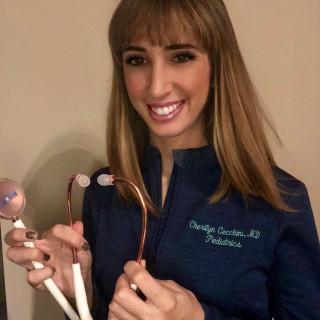
I recently attended a conference in San Francisco, California, where the increasing amount of physician suicide was discussed in concert with the ramifications of a psychiatric diagnosis for physicians. An attendee addressed the audience after the presentation. She disclosed that she was a resident physician and that she had been previously hospitalized for five days with symptoms of severe anxiety, depression, and suicidality. As tears welled in her eyes, she urged attending physicians and other members of the medical community to check in with one another, especially residents, to debrief each other such that they continue to raise awareness about this circumstance.
After disclosing this, many other physicians approached her to offer support and thanked her for sharing such a private, meaningful detail. One older physician came up to her and said that, although she was thankful that the young woman shared her feelings, she warned her that she should be less open about the incident. She told her that the stigma surrounding mental health is a “stigma that no physician can afford.” She continued to rattle off cases of her colleagues unable to find jobs given their history of anxiety or depression. The resident physician was taken aback by this conversation and ultimately felt even more passionate about continuing to draw more attention to the situation.
I’ve seen this topic discussed in various news outlets and social media avenues, which is encouraging to me. What is disappointing is that major organizations have not yet made policy changes amidst the crisis. “One million Americans lose their doctors to suicide each year.” In light of this, I would go as far as to label this a crisis. In the past three years, I cannot even count on my hands how many fellow residents have faced symptoms of anxiety or depression. I can hardly keep track of how many residents have felt isolated without ways to seek mental health resources. Additionally, many residents fear the negative consequences and stigma surrounding the admission of a mental health diagnosis.
Let me share another story with you. A resident physician had been hospitalized for suicidality during residency. He was open and honest about the encounter with his residency program. He was told that there would be no negative consequence and that the program only wanted to continue to support him and insure that he could find time for adequate mental health services. Later, though, he faced hardship during one of his inpatient rotations. He felt bullied by the staff members and ultimately wrote that he felt “unsafe” in the unit after reporting the behaviors. He found himself facing severe psychiatric testing and he was asked to leave the unit. His mental health history was used as an excuse for this behavior and staff members cited his “emotional outbursts” as problematic. He felt targeted by the program and regretted disclosing any mental health incidents, since it would have been unlikely that any resident with a clean history would have faced the punitive requirements and burdens subsequently placed onto him.
I dug a little bit deeper in the ACGME website to see if there was adequate information regarding physician suicide and physician wellness. While there is an entire page dedicated to the topic, I asked myself if this was enough? How exactly are these resources translated into the everyday lives of physicians, especially trainees?
The website reads, “institutions that sponsor ACGME-accredited programs must provide residents and fellows with access to health services, such as confidential counseling. They must have programs to educate residents, fellows, and faculty members about fatigue management and mitigation. They need to have policies covering harassment. And, there must be systems in place for monitoring and identifying any form of mistreatment, along with processes to resolve complaints in a safe and non-punitive environment.” After reading just these two anecdotal stories, my thought is that those programs need to require confidential counseling; but when is a resident supposed to access these services when they’re working up to eighty hours in the work place?
Let me share another story with you. A resident physician finds herself on hour 27 of her 28-hour shift. On hour 14, one of her critically ill patients died. No one has debriefed her about the event. She is called in to speak to an upset parent. Just prior to entering the room, her mind relates back to the recent argument she had with her significant other. She knocks on the door, enters, and remains in the patient room for up to one hour listening to the parental complaints about the hospital, the staff, and the inability of the institution to appropriately care for her critically ill son. She is berated by the parent while being unable to diffuse the situation and ultimately leaves the room feeling defeated. She is late signing out her patients and her shift turns into one that is 30 hours long. She arrives home, tearful, to an empty apartment. She falls asleep out of pure exhaustion, only to wake up in the throes of her own heartbreak and the realization that she has lost the person who had been her sole support. Not to mention that she is facing stresses of financial insecurity from the debt incurred by her student loans, and the fact that her rent is due in two days. She packs her bag and returns to work with almost no time to process her own pain.
I haven’t mentioned the numbers yet, so let me take a moment to do so. Here, I want to cite a number of meaningful and powerful articles that have inspired me to write this very one. “Nine of 10 doctors discourage others from joining the profession, and 300 physicians commit suicide every year,” writes internist, Dr. Daniela Drake. “High doctor suicide rates have been reported since 1858,” family physician, Dr. Pamela Wible, points out. Suicide is the “second-leading cause of death for residents — and the leading cause for male residents,” states Dr. Nathaniel P. Morris, resident physician in psychiatry at Stanford University School of Medicine.
I do not have answers for the questions posed earlier. I agree with other physicians who argue that earning a medical degree and taking care of patients is incredibly gratifying and fulfilling. Do I think that demands on physicians have changed and that navigating health care has become more complex and challenging? Yes. Do I feel that greater action needs to be taken to protect physician and trainee wellness? Yes. I close my article with the same sentiment shared by Dr. Wible, “Healers, after all, also need healing.”
For more information about resident physician wellness, view the American Medical Women’s Association wellness brochure created by Drs. Cherilyn Cecchini, Parin Patel, Harmanjot Kaur, and Anna Zelivianskaia, here.







